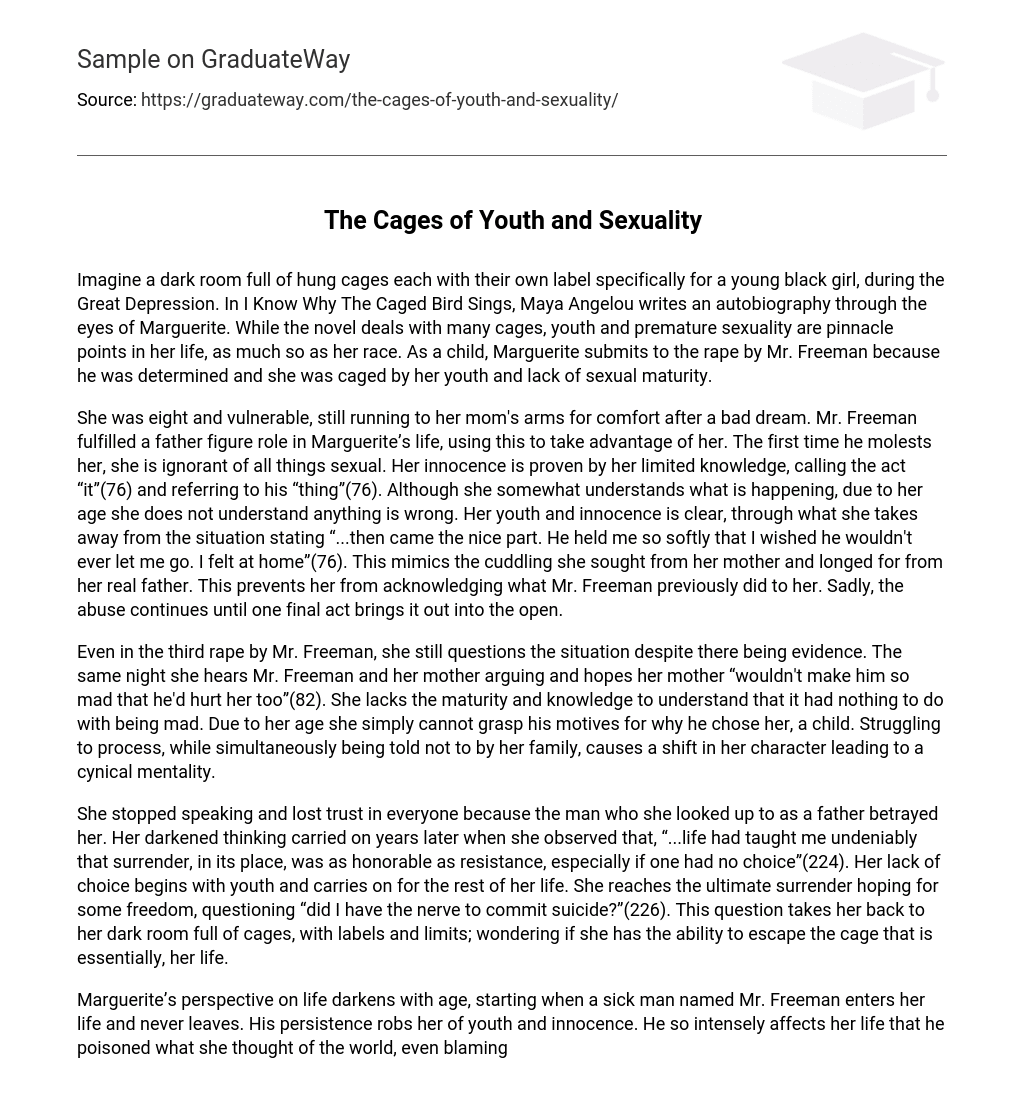Imagine a dark room full of hung cages each with their own label specifically for a young black girl, during the Great Depression. In I Know Why The Caged Bird Sings, Maya Angelou writes an autobiography through the eyes of Marguerite. While the novel deals with many cages, youth and premature sexuality are pinnacle points in her life, as much so as her race. As a child, Marguerite submits to the rape by Mr. Freeman because he was determined and she was caged by her youth and lack of sexual maturity.
She was eight and vulnerable, still running to her mom’s arms for comfort after a bad dream. Mr. Freeman fulfilled a father figure role in Marguerite’s life, using this to take advantage of her. The first time he molests her, she is ignorant of all things sexual. Her innocence is proven by her limited knowledge, calling the act “it”(76) and referring to his “thing”(76). Although she somewhat understands what is happening, due to her age she does not understand anything is wrong. Her youth and innocence is clear, through what she takes away from the situation stating “…then came the nice part. He held me so softly that I wished he wouldn’t ever let me go. I felt at home”(76). This mimics the cuddling she sought from her mother and longed for from her real father. This prevents her from acknowledging what Mr. Freeman previously did to her. Sadly, the abuse continues until one final act brings it out into the open.
Even in the third rape by Mr. Freeman, she still questions the situation despite there being evidence. The same night she hears Mr. Freeman and her mother arguing and hopes her mother “wouldn’t make him so mad that he’d hurt her too”(82). She lacks the maturity and knowledge to understand that it had nothing to do with being mad. Due to her age she simply cannot grasp his motives for why he chose her, a child. Struggling to process, while simultaneously being told not to by her family, causes a shift in her character leading to a cynical mentality.
She stopped speaking and lost trust in everyone because the man who she looked up to as a father betrayed her. Her darkened thinking carried on years later when she observed that, “…life had taught me undeniably that surrender, in its place, was as honorable as resistance, especially if one had no choice”(224). Her lack of choice begins with youth and carries on for the rest of her life. She reaches the ultimate surrender hoping for some freedom, questioning “did I have the nerve to commit suicide?”(226). This question takes her back to her dark room full of cages, with labels and limits; wondering if she has the ability to escape the cage that is essentially, her life.
Marguerite’s perspective on life darkens with age, starting when a sick man named Mr. Freeman enters her life and never leaves. His persistence robs her of youth and innocence. He so intensely affects her life that he poisoned what she thought of the world, even blaming herself for his death. As if she was not shackled by enough cages, Mr. Freeman succeeds in adding a new one, himself. She ultimately learns a lesson that “The child gives, because the body can, and the mind of the violator cannot”(80).





